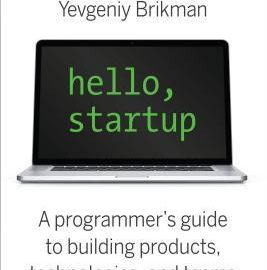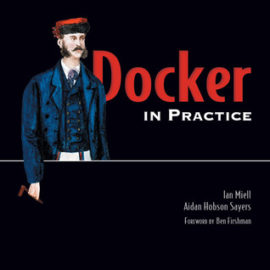Disclosure: I may earn affiliate revenue or commissions if you purchase products from links on my website. The prospect of compensation does not influence what I write about or how my posts are structured. The vast majority of articles on my website do not contain any affiliate links.
When Tai Lopez first let us into his garage in 2015, some were captivated by his pursuit of knowledge. Others turned him into a meme.
He was standing next to a Lamborghini, surrounded by shelves packed with books, and claimed to have given a TED Talk in which he spoke about reading a book a day. In his selfie video, he quickly attempted to qualify himself as someone worth listening to. And it worked. Tai’s Here in My Garage YouTube ad campaign–possibly one of the most aggressive ever undertaken by a single person–attracted a significant amount of attention.
While it’s easy to poke fun at the ad, it’s impossible to deny how mesmerizing it is to watch it for the first time.
Tai’s reading a book a day was seen by many as the pinnacle of his sales pitch. Since the vast majority of people don’t read regularly, they perceive voracious readers as wise and infallible. I read an obituary today in which a woman was described as a voracious–why do we use this adjective exclusively?–reader, and I admit that I immediately considered her the most accomplished on that page of the obits. Reading is powerful because, even as Tai Lopez’s narrative was torn apart–he apparently rents the houses, cars, and planes in his videos–the book a day thing wasn’t something that haters could take away.
Reading a book a day is a superhuman pursuit. When I first saw Tai’s video, I doubted I could even manage to read just one a week. I was getting through one every twelve days at that point, and, eventually, I got it down to one per six-point-something-days, but that was aided by my designing an independent study in which I got college credits for reading as much cool shit as possible. The obvious answer of speed reading aside, I had to know his secret. How was he retaining all this information?
In Tai’s TED(x) Talk titled Why I read a book a day (and why you should too) he talks about books being useful because they can offer glimpses into the lives of successful people who would otherwise be inaccessible. He sells the idea of the good life existing and being attainable. But, even then, biographies are such a small part of the world of literature. Surely, the audience was hoping Tai had more to say, such as how he actually managed to read one book a day.
Tai later released a video called How to Read a Book in Ten Minutes. He also posted videos where he details how he picks books to read, his smart reading techniques, and a review of Tim Ferris’ The 4-Hour Work Week. In these videos, Tai often mentions his book club, at one point calling it the number one book club on the internet. To this day, I have not been able to find any evidence of the daily mailing list ever having existed. There are some Amazon affiliate links to popular books on his website, but nothing else.
The purpose of this post isn’t to discredit Tai Lopez. I watch an embarrassing amount of his YouTube videos and gmail marked him as an important person due to the fact I open most of his emails regardless of what he’s trying to sell me. Not only do I think we can all learn a lot from Tai Lopez, but I also think it’s beyond cliche to attack the guy at this point.
When Tai Lopez finally revealed his secret to reading so many books, he provided two distinct methods. The first included performing a two minute skim in which you literally judge a book by the cover and then check out the table of contents. From there, you’re advised to take a more careful glimpse through the book, and to do it three times. Apparently, that counts as reading a book. It should take ten minutes if you’re really good at it. The second method involves reading a summary of the book or paying someone to write a special summary tailored to you. The good thing about this strategy is that it doesn’t require you to pick up the book at all.
Look- I don’t think reading is a sacred art. I don’t think there’s a right way or a wrong way to do it. Jay Gatsby stocked his mansion’s library full of books, but none of the books’ gilded pages were cut. This detail was left out of the library scene in the movie, making it pointless, but in the novel it served to illustrate that the books were just a veneer. He hadn’t opened a single one.
When you do purchase a book, even if you never open it, it’s a step in the right direction. But when Tai Lopez equates reading–skimming–buying books with gilded pages–with genius, a line has to be drawn. What percentage of the TED Talk audience would have stood up and left if he admitted to not actually reading the books? Would his breakout video have been so impactful if the bookshelves in his mansion in the Hollywood Hills were stocked with printouts of Wikipedia plot summaries?
We learn best through focused effort and association. The reason you retain information from a book so well is because you’re engaged, mostly free from distractions, and can more easily piece things together. By stringing like ideas together, which is done for you in even the most terrible books, you’re able to form a cohesive mental picture of what you’re reading- whether a comic book or the driest of autobiographies.
Regardless of how quickly you read, by working through and comprehending every word in book, you’re forming connections in your brain that those who instead view a bulleted list cannot. It’s imprinted on your memory and you very well might carry it through the rest of your life. This opens the door for careful analysis, reflection, and discussion. These are things that are inaccessible to those who pretend to read books, and, likely, to those who peddle speed reading methodologies. There are people out there now telling you how to hack your workout, hack your brain, hack your breakfast, and hack how you consume literature–really it’s a crazy time we live in–but the simple truth is that there’s nothing like sitting down and just reading the damn book.
Feeling like you’re not doing something the optimal way can spur anxiety. That anxiety causes you to want to buy things. That’s how most of the gurus of the modern web can afford to rent expensive things that in turn make you feel worse about yourself. When it comes to reading, whether you see it as a ticket to the good life, a hobby, or a dreadful necessity, don’t worry about what anyone is telling you to do. Because it’s probably wrong and it’s probably part of a mirage carefully designed to drain your wallet. The benefits of traditional reading cannot be reduced to SparkNotes.




